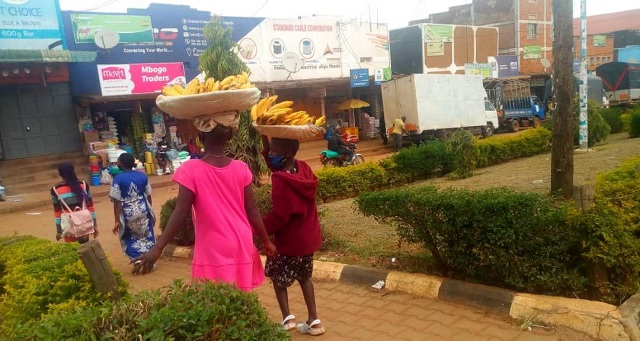
COMMENT | Benson Muhindo | When we talk about sexual violence in the workplace, what’s the first thing that comes to mind? A boss assaulting their employee? A colleague harassing a fellow worker? But have you ever thought about the harassment that market vendors, street hawkers, female conductors, and other women in the informal sector endure daily? The vulgar language, the body shaming, the inappropriate touches, the unsolicited advances, these are all forms of sexual harassment that women in informal workspaces face regularly as they try to earn a living.
The question is, what laws exist to address this? How many safe spaces are available for these women to report such abuses? Many of them do not even know how to reject, dismiss or report these abuses without facing backlash, whether emotional, financial or physical. Perhaps the most troubling aspect of this crisis is the silence surrounding it. Even when sexual violence is acknowledged, discussions often focus on formal workplaces, leaving workers in the informal sector out of the conversation.
Do Uganda’s Laws Offer Protection?
Uganda has made some strides in tackling gender-based violence and sexual violence. Laws such as the Penal Code Act, the Employment Act (2006), and the Anti-Sexual Harassment Regulations (2012) provide some level of protection. However, these laws & their implementation primarily gravitate towards formal workplaces, leaving a significant gap when it comes to informal workers.
The Employment Act (2006) defines sexual harassment and outlines the obligations of employers in formal workplaces to prevent and address it. However, for workers in the informal sector who do not have a defined employer-employee relationship, these protections are practically non-existent. The Anti-Sexual Harassment Regulations (2012) apply to structured workplaces with at least 25 employees, further excluding millions of women who work in informal spaces such as markets, streets, and homes.
The Penal Code Act criminalizes acts of sexual violence, including assault and harassment, but enforcement remains a challenge. Many victims in the informal sector fear reporting cases due to social stigma, lack of awareness, and the possibility of losing their source of income. Without clear enforcement mechanisms tailored for the informal economy, these laws remain largely ineffective in protecting vulnerable women.
The Way Forward
We need to take deliberate steps to ensure that the workers in the informal sector are protected from sexual harassment. This can be achieved through:
1. Expanding the scope and implementing of existing laws to explicitly cover workers in the informal sector and outline clear penalties for perpetrators.
2. Conducting awareness campaigns to educate informal workers about their rights and equip them with strategies to respond to harassment.
At Reach A Hand Uganda (RAHU), we are committed to ensuring that all women, regardless of their workplace, can live and work with dignity and safety. Through the Right Here Right Now Project, together with partners in the Right Here Right Now Coalition, we actively engage various stakeholders to address critical issues affecting women in the districts of implementation which are Fortportal, Kabarole, Kasese & Kampala.
Our initiatives including Intergenerational Dialogues, Focus Group Discussions, and policy advocacy engagements, provide platforms for meaningful conversations, knowledge-sharing, and action-driven solutions. Additionally, we are pushing for stronger protections, better policies, and a safer working & living environment for all.
****
 By Benson Muhindo, Country Director, Reach A Hand Uganda
By Benson Muhindo, Country Director, Reach A Hand Uganda
 The Independent Uganda: You get the Truth we Pay the Price
The Independent Uganda: You get the Truth we Pay the Price




Sandhya Singh mission is simple: to uplift communities, ignite change, and sow the seeds of empowerment. One of the achievements of her is to be able to do excellent work for the people, even in difficult circumstances, despite the pressure of the same social environment in which a woman lives. These achievements are not only her, but the economically and socially backward classes have also benefited from it.